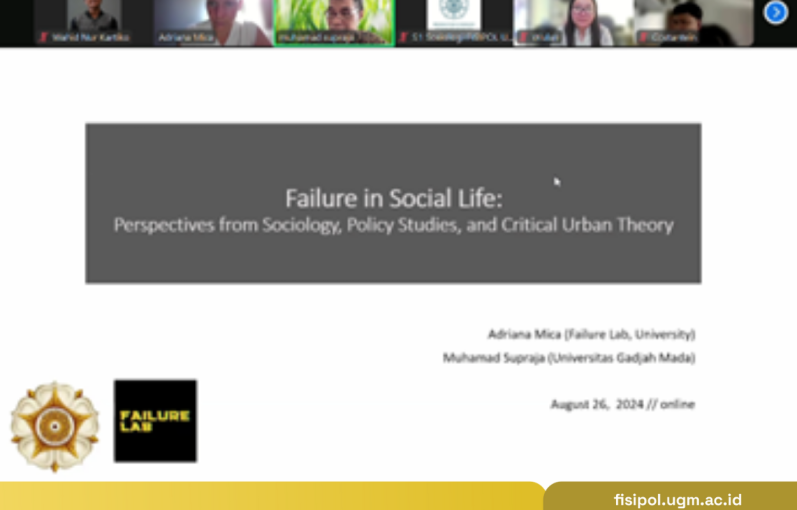
Yogyakarta, August, 26th 2024─The Department of Sociology, Faculty of Social and Political Sciences, Universitas Gadjah Mada presented a guest lecture with the theme “Failure in Social Life: Perspectives From Sociology, Policy Studies, and Critical Urban Theory”. The lecture, which was held online through the zoom platform on Monday (26/08), was the first in a series of lectures that explored the discourse on failure in social science. This lecture presented Adriana Mica, Ph.D from the University of Warsaw and Dr. Muhammad Supraja from Universitas Gadjah Mada.
Adriana opened the first class with an introduction to this new discourse. Adriana stated that failure needs to be interpreted not only from a neoliberal view, but also from a broader view. According to her, failure can be interpreted as a door to better change and innovation. “Failure is not only interpreted as incompleteness, unsuccessful, but failure needs to be interpreted as a source of learning and resources for humans as players in their lives to continue to move forward,” she explained.
Adriana also emphasized that as individuals, it is important that we have the capability and resilience to deal with failure. She cited several books in which she summarized the relationship between success and failure. To achieve success, we often need to deal with failure and continue to survive and develop ourselves. “We just need to continue to survive and continue to develop little by little, we just need to stay in the game and not give up,” she explained.
She said that the concept of failure is related to the future, especially in dealing with crises. As has happened during the COVID-19 pandemic, there are various failures that occur such as many individuals who choose not to do what has been called for in the common interest. In addition, she also conveyed how failure occurs when the government is unable to communicate their policies. Especially when there is a hidden agenda by the political elite that is not based on the public interest.
This lecture is a manifestation of the FISIPOL UGM to continue to strive for the achievement of sustainable development goals point 4 on quality education.
